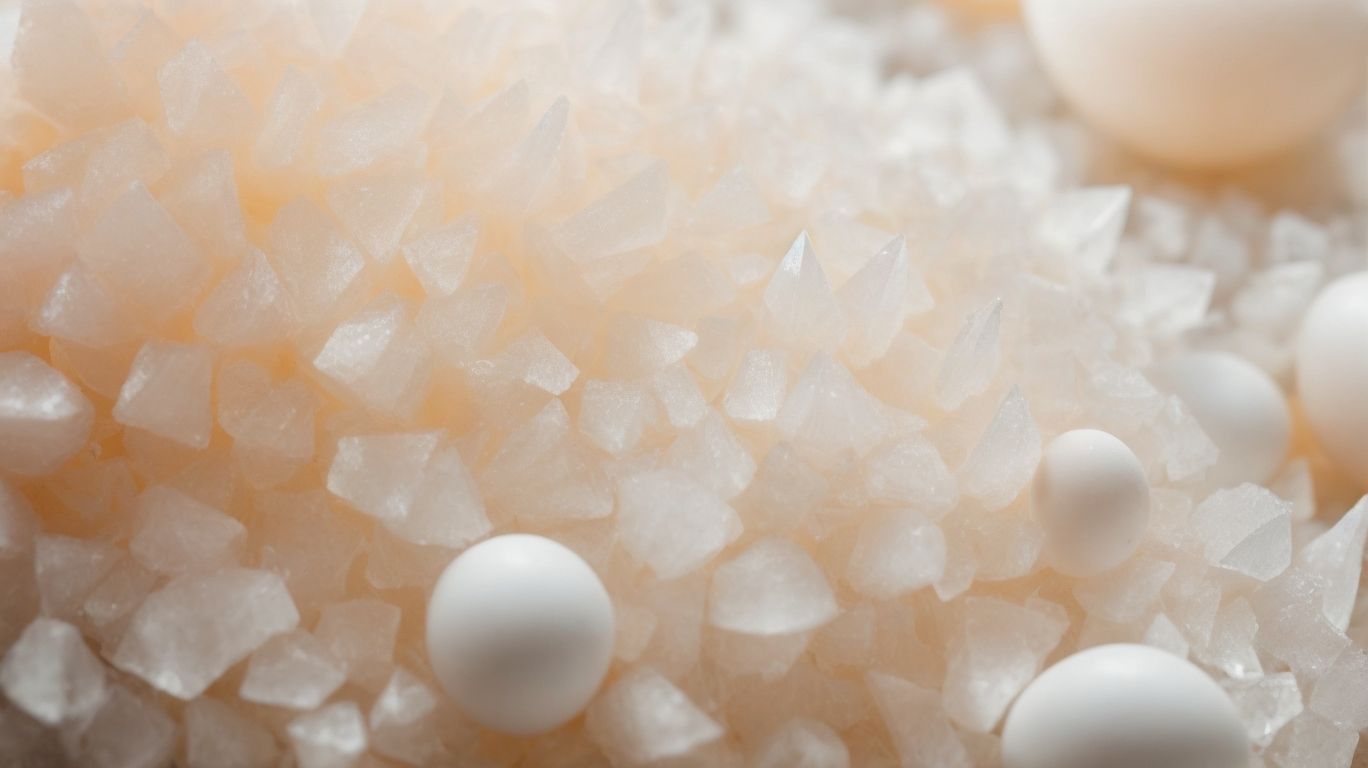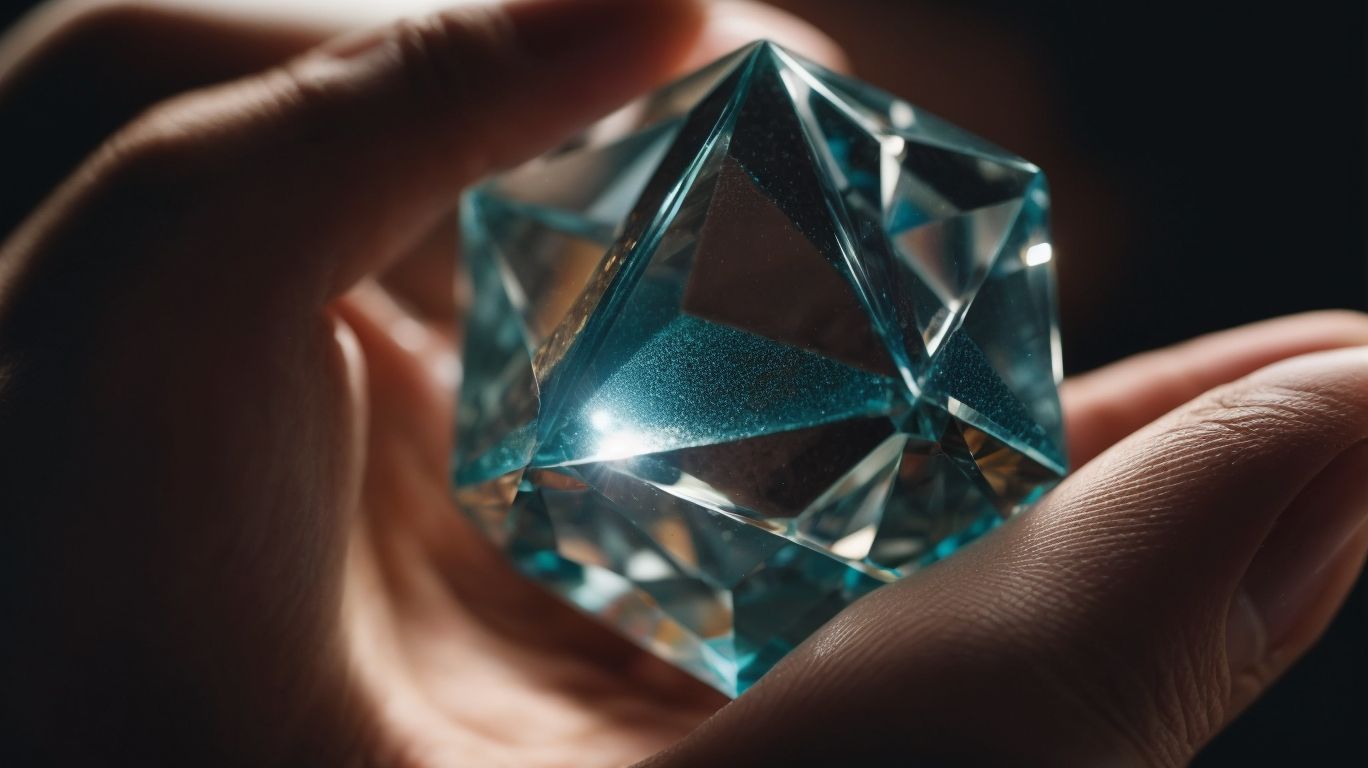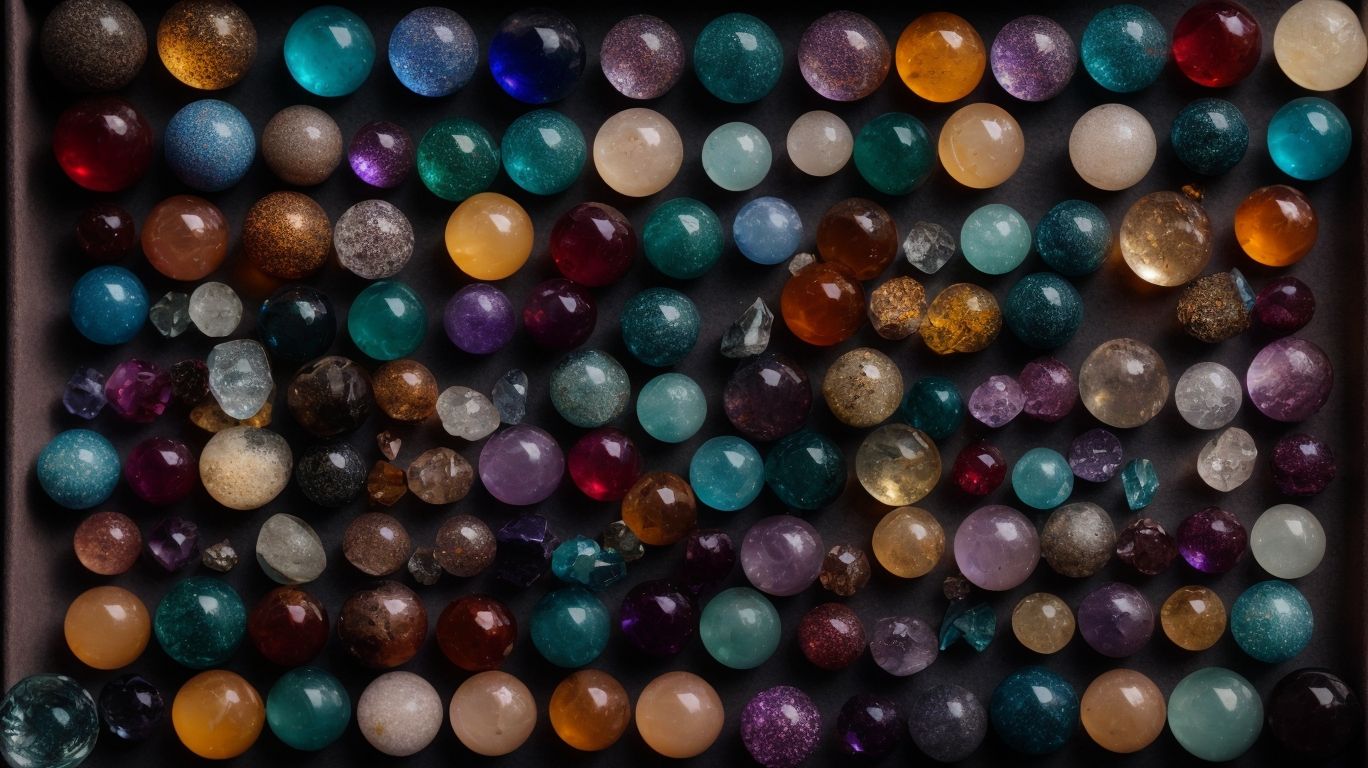
Eggshell Wonders: The Mystery of Egg White Crystals
Eggshells may seem like simple, everyday items, but they hold a fascinating secret within them – egg white crystals. These tiny, translucent crystals are packed with nutrients and have a wide range of benefits and uses. In this comprehensive article, we will delve into the intriguing world of egg white crystals, exploring what they are made of, how they form, their benefits, potential risks, and even how you can make your own at home.
So, get ready to uncover the mysteries of egg white crystals and discover the incredible potential they hold for nutrition, skincare, and beyond.
What Are Eggshells Made Of?
Eggshells are an intriguing marvel of nature, composed primarily of calcium carbonate, a mineral formed through the process of biomineralization.
This organic-inorganic composition provides the eggshell with its remarkable strength and resilience. The fascinating process of biomineralization involves the deposition of minerals by living organisms, resulting in the creation of complex structures such as eggshells.
The molecular structure of calcium carbonate within the eggshell contributes to its ability to protect the developing embryo inside. Understanding the intricacies of eggshell formation sheds light on the incredible adaptation and natural engineering found in the animal kingdom.
What Are Egg White Crystals?
Egg white crystals are a remarkable phenomenon, consisting of crystallized protein structures with intricate molecular formations.
These protein crystals form as a result of the denaturation of egg white proteins, such as ovalbumin and ovotransferrin, followed by a process of nucleation and growth. The molecular structure of these crystals exhibits a highly organized arrangement of amino acid chains, leading to their unique microscopic morphology. Under the right conditions of temperature and pH, these proteins aggregate and align into a lattice-like structure, giving rise to the characteristic geometric shapes observed in egg white crystals.
How Do Egg White Crystals Form?
The formation of egg white crystals is influenced by various factors, including temperature, humidity, and pH levels, which play a pivotal role in the crystallization process.
Temperature and Humidity
The temperature and humidity conditions significantly affect the crystallization of egg white, playing a crucial role in the science behind crystal formation.
These conditions influence the rate at which water molecules leave the egg white, impacting crystal formation. High temperatures can hasten the process, encouraging rapid evaporation of water and leading to smaller crystals, while lower temperatures may result in slower evaporation and larger crystals.
Similarly, humidity levels determine the moisture content in the surrounding air, affecting the rate of water evaporation and crystal growth. Understanding these factors is essential for harnessing the surprising nature of crystallization in egg white.
Time and Age of Egg
The time and age of the egg are key factors in the development of egg white crystals, influencing their crystallography and overall formation.
As an egg ages, the protein structure undergoes changes, leading to variations in the crystal formation process. The impact of time on crystal development is profound, as it affects the protein matrix’s ability to organize and form crystalline structures. Crystallography plays a pivotal role in understanding the arrangement of molecules within the egg white, shedding light on the intricate formation process.
Factors such as temperature, pH, and storage conditions also influence crystal development, making the study of egg aging and its impact on crystal formation a multifaceted and intriguing area of research.
pH Levels
The pH levels of the surrounding environment play a critical role in the mineralization and protein crystallization process of egg white crystals.
Maintaining proper pH levels is essential for the formation of well-defined crystals, as variations can significantly impact the quality and size of the crystals formed. Low pH levels can lead to denaturation of proteins, impeding crystal growth, while excessively high pH levels can hinder the nucleation process, affecting the overall crystallization.
Understanding the intricate relationship between pH and crystal formation is crucial due to the enigmatic nature of this process, offering insights into the mechanisms governing mineralization and protein crystallization.
What Are the Benefits of Egg White Crystals?
Egg white crystals offer a range of benefits, including high protein content and a rich supply of essential amino acids, making them a valuable nutritional resource.
This premium source of protein helps in muscle repair, recovery, and growth, and is also low in calories and fat. Its unique composition makes it ideal for those looking to increase their protein intake without consuming additional carbohydrates. Egg white crystals are easily digestible, making them a convenient choice for athletes, fitness enthusiasts, and individuals following a healthy lifestyle.
With their versatility, they can be incorporated into various dishes and recipes to boost their nutritional value.
High Protein Content
The high protein content of egg white crystals makes them a valuable nutritional component, offering essential building blocks for bodily functions and overall health.
This protein-rich nature is particularly beneficial for muscle repair and growth, making egg white crystals an ideal choice for athletes and fitness enthusiasts. The composition of egg white crystals also includes vitamins such as B12 and minerals like selenium, further enhancing their nutritional value. Incorporating these protein-packed crystals into your diet can aid in weight management and promote satiety, making them a versatile and essential addition to a balanced diet.
Low Calorie Count
Egg white crystals provide a nutritious option with a low calorie count, offering a balanced combination of essential amino acids and dietary benefits.
These crystals are particularly rich in leucine, lysine, and valine, which are essential for muscle repair and growth. With only 17 calories per serving, they are a fantastic source of high-quality protein, making them a popular choice for individuals aiming to reduce calorie intake and maintain muscle mass.
Egg white crystals are cholesterol-free and low in fat, further enhancing their appeal for health-conscious consumers.
Rich in Essential Amino Acids
The richness of essential amino acids in egg white crystals contributes to their positive impact on health, supporting vital processes such as protein synthesis and cellular maintenance.
These amino acids play a pivotal role in the body’s ability to repair and build tissues, making egg white crystals a valuable source of nutrition for muscle recovery and growth. Consuming egg white crystals provides a low-calorie, high-protein option, which can contribute to weight management and overall metabolic health.
The amino acids in egg white crystals are known for their ability to support immune function and optimize nutrient absorption, making them a valuable addition to a healthy diet.
How Can You Use Egg White Crystals?
“Egg white crystals can be utilized in various ways, such as a nutritious snack, natural skincare ingredient, and plant fertilizer, offering versatile applications for different purposes.” These crystals, packed with protein and nutrients, make for a convenient and healthy snack option. Their high collagen content also makes them a popular addition to skincare routines, known for their ability to help tighten and firm the skin.
When used as a plant fertilizer, egg white crystals provide essential nutrients to promote healthy growth and development. With such diverse uses, egg white crystals are a valuable and multifunctional product.
As a Nutritious Snack
Utilizing egg white crystals as a nutritious snack presents an innovative way to incorporate a high-quality protein source into culinary creations and dietary choices.
They are a convenient option for individuals seeking a quick protein boost, whether on-the-go or at home. These versatile crystals can be rehydrated and used in recipes for fluffy omelets, light-as-air meringues, or as a binding agent in baked goods.
Their purity and ease of use make them a valuable addition for fitness enthusiasts, athletes, and anyone looking to enhance their protein intake with a wholesome and natural ingredient.
As a Natural Skincare Ingredient
Incorporating egg white crystals as a natural skincare ingredient offers a holistic approach to beauty and rejuvenation, harnessing their beneficial properties for skincare routines.
These crystals are rich in proteins, vitamins, and amino acids that nourish and revitalize the skin. Their astringent properties help in tightening and toning the skin, reducing the appearance of fine lines and wrinkles. Egg white crystals are known for their ability to control excess oil production, making them a great choice for those with oily or combination skin. When used as part of a regular skincare regimen, they can contribute to a radiant and youthful complexion, making them a promising natural alternative in the pursuit of healthy, glowing skin.”
As a Plant Fertilizer
Employing egg white crystals as a plant fertilizer offers an organic approach to soil enrichment, providing essential nutrients for the growth and vitality of plants.
They are rich in protein, amino acids, and calcium, which are beneficial for fostering robust root development, promoting vibrant foliage, and enhancing overall plant health. The slow-release nature of egg white crystals ensures a steady supply of nutrients, fostering long-term soil fertility and minimizing the risk of nutrient leaching.
Their environmentally friendly composition makes them a sustainable choice for conscientious gardeners, contributing to a healthier and more balanced ecosystem.
Are There Any Risks or Side Effects of Consuming Egg White Crystals?
Consuming egg white crystals may pose potential risks such as allergic reactions, bacterial contamination, and an impact on cholesterol levels, requiring careful consideration of their consumption.
Allergic reactions to egg white crystals can range from mild symptoms such as hives and itching to severe anaphylaxis, which can be life-threatening. Bacterial concerns arise due to the potential presence of Salmonella and other pathogens in raw egg whites, leading to foodborne illnesses. While egg whites are low in cholesterol, consuming them in excess may still have implications for individuals with cholesterol-related concerns.
It is important for individuals to be aware of these potential risks and consult with a healthcare professional for personalized guidance on their consumption.
Allergic Reactions
Individuals with sensitivities or allergies may experience adverse reactions upon consuming egg white crystals, necessitating caution and awareness of potential health concerns.
Common allergic responses to egg white crystals may include hives, swelling, or digestive discomfort. Severe cases could lead to anaphylaxis, a potentially life-threatening reaction. It is essential for those with known sensitivities to carefully read food labels and inquire about ingredients when dining out to avoid inadvertent exposure.
Individuals prone to allergic reactions should consult with a healthcare professional to understand the risks and necessary precautions associated with egg white consumption.
Bacterial Contamination
Bacterial contamination is a critical consideration when consuming egg white crystals, warranting attention to food safety measures and hygiene to mitigate potential health risks.
Ensuring proper storage and handling of egg white crystals is essential to prevent contamination. Maintaining a clean food preparation area and thoroughly cooking the egg whites can significantly reduce the risk of bacterial infections. Regular handwashing and sanitization of utensils are also vital in preventing cross-contamination.
Following recommended guidelines for the safe storage and refrigeration of egg white products is crucial to minimize the health hazards associated with bacterial contamination.
High Cholesterol Levels
The impact of egg white crystals on cholesterol levels is a significant consideration, particularly in relation to potential effects on dietary choices and cardiovascular health.
They have been studied for their potential to influence the balance of good and bad cholesterol in the body, and their integration into a balanced diet may offer promising implications for cardiovascular health. The potential impact of egg white crystals on cholesterol levels raises important questions about their potential as a dietary influence, especially for individuals looking to manage their cholesterol levels through dietary choices.
How Can You Make Your Own Egg White Crystals?
Creating your own egg white crystals is an intriguing DIY endeavor that involves the formation and crystallization of protein structures through experimentation and observation.
Begin by separating the egg whites from the yolk and carefully whisking them with a pinch of salt to break up the proteins. Then, slowly add a sugar solution to the egg whites, stirring gently to create a supersaturated solution. Allow the solution to sit for several days, periodically observing the transformation as the proteins crystallize.
Once the crystals have fully formed, carefully remove them from the solution and marvel at the unique and delicate structures you have created.




No Comments